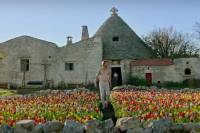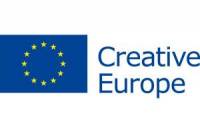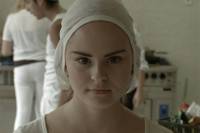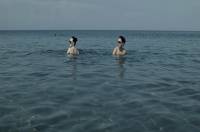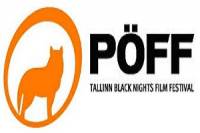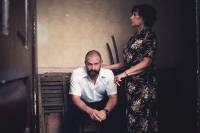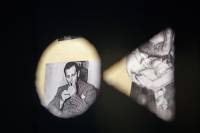For films shot in Lithuania – prestigious International Emmy nomination and success at International Film Festivals
Press releases 13-11-2017Lithuania is an attractive destination for those foreign filmmakers who come here seeking not only flexible prices for film production and services but also a professional crew and suitable locations. Last year, Lithuania attracted the highest number of foreign productions since the introduction of its 20 percent tax incentive in 2014. Worldwide known directors, actors and producers work with the projects partly shot in Lithuania. Films produced in this country have also been noticed on the international film market. The Founder and producer of a Lithuanian production company, ARTBOX, Kestutis Drazdauskas shares his International co-production experience.
Come to Warsaw and join Creative Europe Desk Poland and National Film Archive – Audiovisual Institute for Images That Move – European Conference on Film Education on November 21.
During the event, presentations will be delivered by leading Polish and European experts in film education. Moreover, the participants will have an opportunity to take part in workshops conducted by representatives of organisations involved in European projects co-financed within Film Education scheme of Creative Europe’s MEDIA Sub-programme. Keynote speech on creative media education will be delivered by prof. Wanda Strauven, Goethe-Universität Frankfurt. During panel discussions European experiences in the field of partnerships building among institutions as well as inclusion of various groups of recipients will be discussed.
The participation in the event has been confirmed by European experts: prof. Wanda Strauven (Goethe-Universität Frankfurt), Bernard McCloskey (Northern Screen Ireland), Simone Fratini (Fondazione Cineteca di Bologna), Ginte Zulyte (Meno Avilys), as well as, among others, prof. Bogusław Skowronek (Pedagogical University in Cracow), Joanna Zabłocka-Skorek, phd (KinoSzkoła Programme Director), Ewelina Waląg (School Filmoteque Programme Leader).
The conference will take place at the premises of National Film Archive – Audiovisual Institute in Warsaw, Walbrzyska St. 3/5.
Presentations, lectures and panel discussions taking place in ZIEMIA OBIECANA Conference Room will be translated simultaneously.
For those interested in workshops, previous registration is required by choosing the preferable option in registration form. Meetings with European experts taking place in rooms Minimax 1, 2 and Wielka Gra will be held in English.
Participation in the event is free of chargé, however due to limited number of seats, previous registration is required. Registration form is available at http://bit.ly/ITM_zapisy.
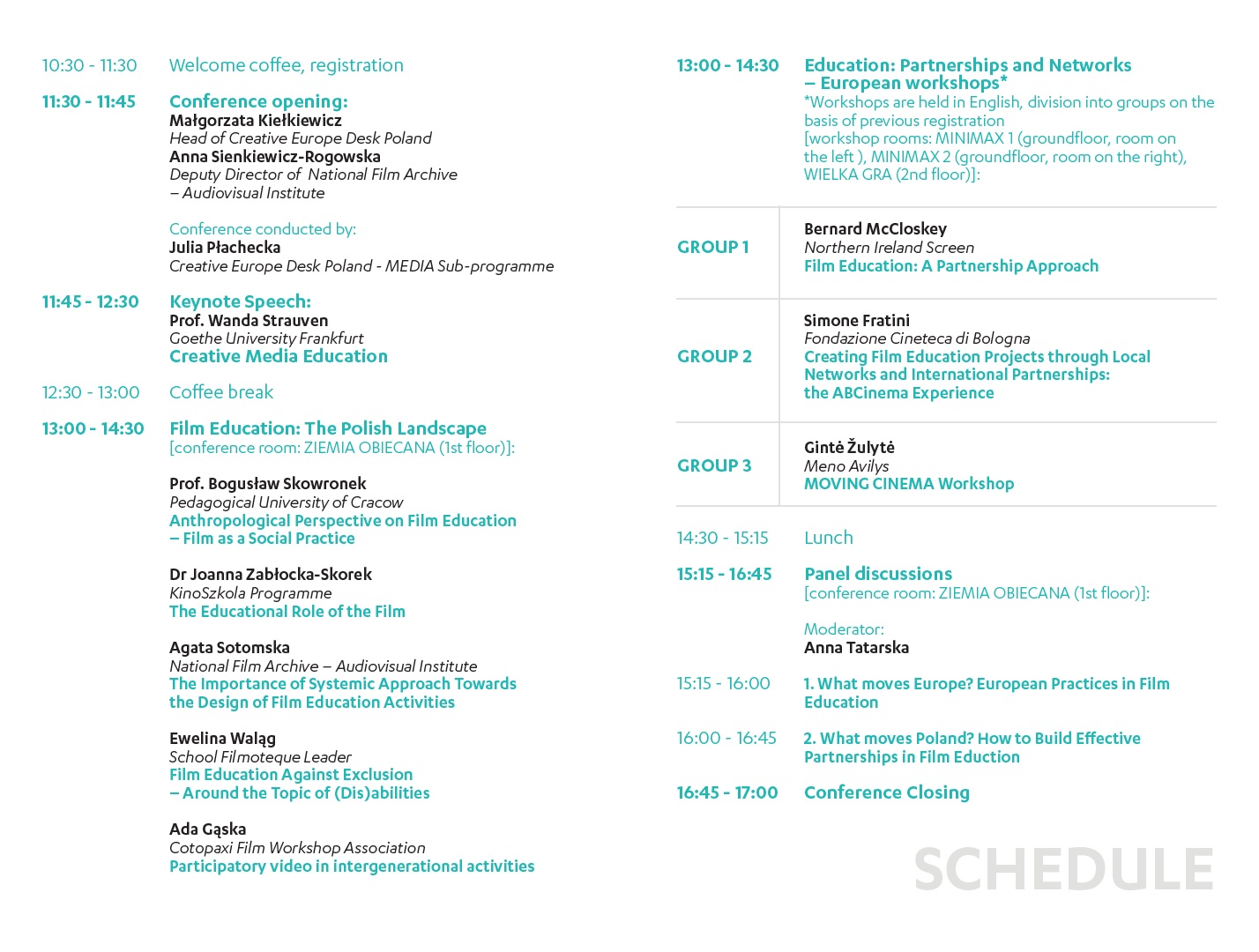
Slovenian production grants announced by the Slovenian Film Center in September 2017
Czech films are having a banner year at IDFA.
Production of feature narrative, documentary and animated films
Czech documentaries celebrate successful year with record presence at IDFA
Press releases 09-11-2017
Three Czech documentaries are in the programme of the 30th IDFA – International Documentary Film Festival Amsterdam. IDFA’s competition sections include two Czech documentaries – Nothing Like Before about four teenagers in a Czech border town, and The Russian Job about a Swedish manager who tries to salvage the Soviet car manufacturer Lada. The controversial documentary The White World According to Daliborek that follows a small-town neo-Nazi will be presented in the prestigious section Masters. IDFA takes place November 15 - 26 and the sizeable Czech delegation will be headed by the Institute of Documentary Film. IDF representatives will help filmmakers to navigate the event and promote their films among industry guests.
Screened as part of the IDFA Competition for First Appearance, the feature documentary Nothing Like Before directed by Klára Tasovská and Lukáš Kokeš delves into the lives of four teenagers in a Czech border town. The film captures the protagonists at a time when looming adulthood is beginning to cast an anxious shadow over their carefree high-school existence. “In addition to dealing with the topics and protagonists, we were equally concerned with the way the film should present its content. We were going for a natural feel and we wanted to get really close to the young protagonists, to co-exist with them and explore their environment from their own perspective. We also wanted our approach to be part of the subject matter. We aimed to portray our protagonists faithfully and we wanted to do it in an equally natural and accurate film form, while also including general issues – family, school, friendship – that shape the way we are,” explain the directors Lukáš Kokeš and Klára Tasovská. The film was produced by Pavla Janoušková Kubečková and Tomáš Hrubý (nutprodukce) in co-production with HBO Europe. “We’re happy that Nothing Like Before will be presented in the prestigious First Appearance section. This achievement is the result of the unique creative vision of the directors Klára Tasovská and Lukáš Kokeš but also the great support and creative freedom provided by HBO Europe and the State Cinematography Fund. We’re incredibly excited by the fact that a film that emphasizes authenticity, restraint and narrative minimalism is able to stand out even at this level,” say producers Tomáš Hrubý and Pavla Janoušková Kubečková.
Petr Horký’s The Russian Job will appear among 15 other films in IDFA’s Competition for Mid-Length Documentary. In an effort to save the unprofitable car manufacturer Lada, the Russian government hires a Swedish manager and several European experts. Their vision and plans eventually clash with the Soviet mentality. “I stumbled upon this story by accident when I worked as a financial journalist for a Czech magazine. I was invited to the Avtovaz plant in Tolyatti along with several other Czech journalists by the plant management to write a piece on the new CEO – the first foreigner in its history – who was tasked with saving the company. I wrote the article but I couldn’t get memories of the place out of my head. The grey, post-Soviet setting deals with the arrival of an intense manager from the capitalist world,” says Petr Horký. The film was produced by Krutart in co-production with Czech TV. “We started out as a group of young documentary filmmakers but we soon realized that this story had a lot of international potential. Thanks to development funding from the State Cinematography Fund, we were able to attend international pitch forum and workshops, such as the East Doc Platform or dok.incubator. IDFA is the culmination of our efforts over the last three years,” says producer Martin Jůza and adds: “If our premiere in Amsterdam turns out to be successful, it will be the best start for the film’s life on the festival circuit. There’s no other festival where you meet so many film and TV professionals.”
Masters is a very popular IDFA section that presents the latest documentaries by renowned international filmmakers, such as Errol Morris, Claire Simon, Steve James, Rithy Panh or Lucy Walker in this year’s programme. In the past, IDFA also included a few Czech films, Jan Svěrák’s Oil Gobblers (1988) and Helena Třeštíková’s Private Universe (2012). As a producer duo, Filip Remunda and Vít Klusák travelled to IDFA with two films by the Ukrainian filmmaker Vitaly Mansky – Pipeline (2013) and Under the Sun (2015). This year, Vít Klusák will be at IDFA as the director of his latest documentary The White World According to Daliborek. “We were very happy that this major festival picked Daliborek for its prestigious Masters screenings. We believe that the film will receive great feedback in Amsterdam, as good as in the review published by Variety after the film’s premiere at the Karlovy Vary IFF,” says producer Filip Remunda.
Docs for Sale
Having a finished film doesn’t mean that the work is over. On the contrary, being able to sell it and find the right audience has been increasingly difficult. Every year, IDFA hosts the industry event Docs for Sale that tries to facilitate the sales of some of the best documentaries by inviting over three hundred sales agents, distributors and festival representatives and offering a selection of the latest films. Filmmakers can arrange meetings with the industry guests to pitch their films. The three Czech films mentioned above and another four films with Czech involvement will be presented at Docs for Sale this year, which takes place from November 17 to 23. The longitudinal documentary film A Marriage Story produced by Negativ in co-production with Czech TV, the Latvian-Czech co-production film D Is for Division by filmmaker Davis Simanis (produced by Guntis Trekteris and Radim Procházka), the creative documentary film The Lust for Power by the Slovak director Tereza Nvotová, produced by PubRes (Slovakia), and co-produced by HBO Europe and Negativ, and Batalives directed by Karolína Zalabáková and Petr Babinec (produced by Lukáš Gargulák, Cinebonbon).
IDFA will host a two-day pitching session for TV professionals organized by the European Broadcasting Union (EBU). On November 19, director Bohdan Bláhovec and producer Anna Herza Tydlitátová will pitch their project Satanic Girls, developed for Czech TV by Petr Kubica's production team.
Institute of Documentary Film
IDFA takes place November 15-26 and the sizeable Czech delegation will be headed by the Institute of Documentary Film. IDF has been supporting creative documentary films from Central and Eastern Europe since 2001. IDF provides both emerging and experienced filmmakers with training, networking and pitching opportunities, helps them get international attention and co-production partners, and improves their orientation in the international market. At IDFA, IDF representatives will help filmmakers navigate the event and promote their films among industry guests. "We feel that participation of so many Czech documentary films at the 30th IDFA is a double success. Most of them have been supported by IDF for some time and participated in several of its activities. Some were developed at the Ex Oriente Film workshop, others were pitched at the East Doc Forum or presented at the Czech Docs...Coming Soon at the East Doc Platform. We will continue to support all of them throughout their festival life," explains IDF's Creative Director Pavlína Kalandrová.
The film industry in the Czech Republic
One of the key moments that have been instrumental in the production of quality documentary films was the passing of the amended Audiovisual Act with a more stable funding for the State Cinematography Fund. The state will annually provide the same amount that the Fund collects from TV advertising, cinemas and cable and satellite TV providers. The annual funding support now amounts to approx. EUR 13,5 million. With the new budget, the Fund’s board prioritizes granting more money to fewer projects in order to support more ambitious films.
Another significant development for the Czech film industry and its international partners is the annual EUR 31 million approved for film incentives from 2016 to 2019. This gives Czech filmmakers more opportunities to find international co-producers. Helena Bezděk Fraňková, the Fund director, adds that the amended law reduces the minimum amount of costs eligible for film incentives, which has made access easier for documentary films. “The Fund also systematically supports documentary films in all stages of development in special calls. There are also a number of industry and educational institutions that receive regular subsidies for their activities in documentary film. I’m glad that our support translates into the success of Czech documentaries at international events,” adds Helena Bezděk Fraňková.
Screenings at IDFA:
The Russian Job
Fri 17 Nov 18:30 Munt 10 World Premiere
Sat 18 Nov 12:45 Tuschinski 4
Mon 20 Nov 14:30 Tuschinski 6
Wed 22 Nov 16:30 EYE Cinema 2
Sun 26 Nov 16:00 Munt 13
Nothing Like Before
Sat 18 Nov 20:00 Munt 10 World Premiere
Tue 21 Nov 18:00 Tuschinski 3
Wed 22 Nov 13:00 EYE Cinema 1
Sat 25 Nov 11:00 Munt 12
The White World According to Daliborek
Mon 20 Nov 18:45 Tuschinski 2 International Premiere
Tue 21 Nov 13:15 EYE Cinema 1 (+ Doc Talk)
Wed 22 Nov 20:30 Munt 11
Sat 25 Nov 14:45 Brakke Grond Expozaal
Contact for media:
Marta Jallageas
Institute of Documentary Film – Public Relations
Tel.: +420 775 669 222
Tallinn Black Nights unveils new programme TV Beats with three series in the lineup
Festivals 09-11-2017
The festival launches its first programme dedicated to series called TV Beats, screening first episodes of the German show Babylon Berlin and two Russian series - Gogol. Origins and Chernobyl: Zone of Exclusion.
Babylon Berlin is the most expensive German series ever produced with a budget of nearly 40 million euros. It follows a young police officer in the Weimar republic during the 1920’s, an era of organised crime and political turmoil that paved way to the rise of national socialism.
The festival will screen two first episodes of the 16-episode series that includes Tom Tykwer, Henk Handloegten and Achim von Borries among the directors. The series has already been sold to more than 60 countries, including Netflix for the US. Actors Lis Liv Fries and Volker Bruch and directors Achim von Borries and Henk Handloegten will attend the screening.
The Russian series Gogol.Origins is a mystical thriller inspired by Nikolai Gogol’s collection of short stories Evenings on a Farm near Dikanka. A detective Jakov Guro and his assistant Gogol, a young court reporter with supernatural powers, are investigating the mysterious murders of young women.
The series, directed by Egor Baranov, is the first ever in Russia to reach cinemas before airing on television. The first film, consisting of two episodes (out of eight episodes in total) launched on 1400 screens and has a box office of 7,8 million dollars with more than 1,9 million tickets sold.
Chernobyl: Zone of Exclusion is the second season of a popular Russian sci-fi series that was launched in 2014. It is the first Russian series ever that has been filmed in Hollywood with the participation of several US actors. The story follows Pasha and his friends into a present-day America, ruined by a nuclear disaster. The 8-episode series, directed by Pavel Kostomarov will air on the 10th of November in Russia.
According to the head of programme Tiina Lokk the aim of creating the new programme is to reflect on the new situation where the boundaries between series and films have vanished in terms of artistic and technical quality and production value. “We have reached a point where the last quality separating the two formats is the very format they are presented in. As a festival dedicated to sharing great stories we feel the need to embrace that change. And we are extremely thrilled with the exciting selection we managed to put together for the first edition!”
The 21st edition of Tallinn Black Nights Film Festival takes place from the 17th of November until the 3rd of December.
BRATISLAVA: Three Slovak productions have scored slots in the Slovak box office top 20 lineup this past week with the latest film in a children’s film franchise, Spievankovo a Kráľovná Harmónia holding onto fifth place after four weeks in release with 358,000 admissions. The film is produced by RTVS with support from the Slovak Audiovisual Fund and distributed by Ita Film, and directed by Diana Novotna.
Minority international coproductions funded by the Polish Film Institute in 2017, 3rd session:
PRAGUE: The deadline for the 7th EAST DOC PLATFORM is 10 November 2017.

